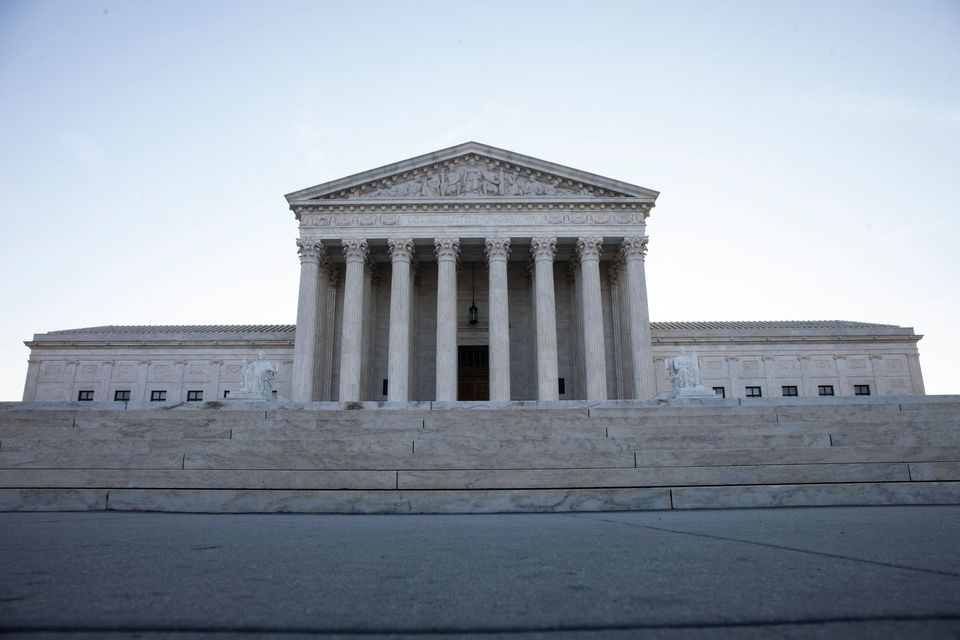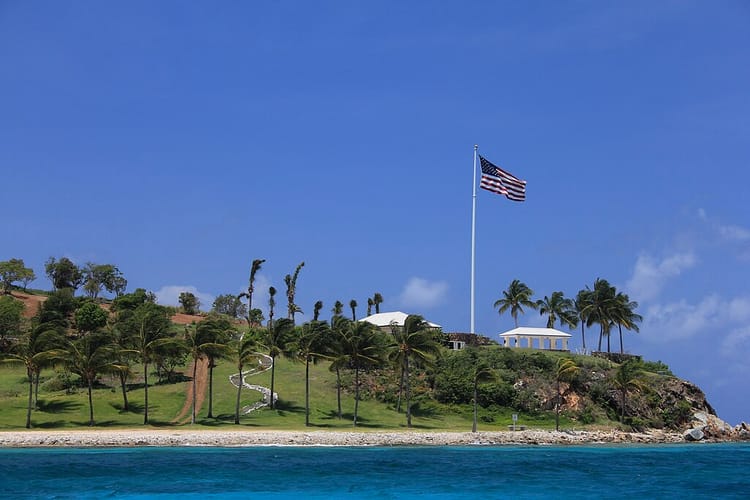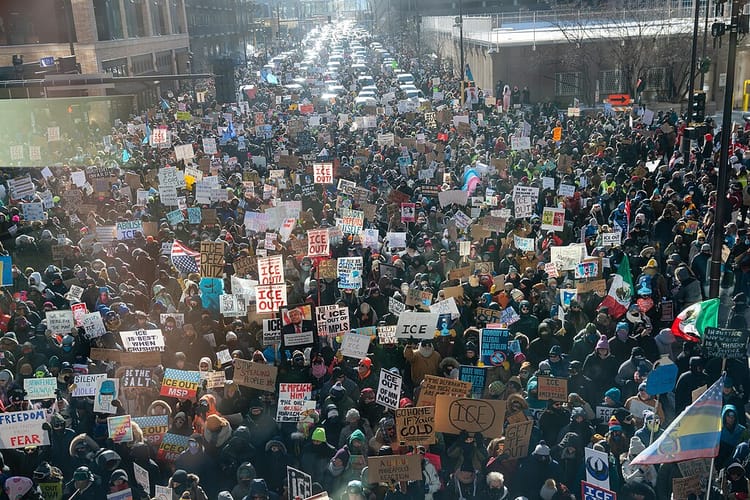Damages: SCOTUS Is Back in Session—Here Are the Climate Cases to Watch For

The Supreme Court is open for business again, what impacts for climate mitigation and adaptation are lurking on the docket this time around? I spoke with Kirti Datla and Sam Sankar from Earth Justice earlier this month; here's a rundown of what they're watching this month (plus a big threat to tribal sovereignty I've got my eye on):
Sackett v EPA
This is what Sankar described as the "blockbuster case" for those who would like to see the U.S. government take real action on climate. It's this sessions West Virginia v EPA if you will, effectively an attack on the Clean Water Act disguised as just a lil' question about developing on wetlands. The Sacketts argue that they should not have had to apply for a permit to fill in some wetlands on their property (even though, according to Sankar, had they applied they likely would have gotten the permit!) This question of limiting the reach of the Clean Water Act, particularly when it comes to wetlands, is something various industries have been trying for a while. Back in 2006, Justice Kennedy wrote in the Rapanos opinion that the court should "trust the scientists" when it comes to determining what's dry land and what's a wetland. Scalia wrote the minority opinion in that case, in which he basically...made up a bunch of rules about hydrology based on how he feels about where the Clean Water Act should or shouldn't apply. Now we have a court that aligns with Scalia on most views and here come the Sacketts and a virtual army of rightwing and pro-industry groups to challenge the Clean Water Act again. Here's the thing: if the Clean Water Act doesn't apply to smaller streams and wetlands, there's no way to stop pollution from getting into much larger sources of water downstream. "There's a lot of industries that would like to be able to fill in wetlands and frankly, pollute areas that currently the Clean Water Act protects," Sankar explained. "And by arguing that the Clean Water Act doesn't protect those things, they're essentially going to accomplish deregulation. So they're not changing the protections of the Clean Water Act, they're changing where it's applied. Back when Justice Scalia was around, he wrote a minority opinion that suggested a much more constricted understanding of what the Clean Water Act protects and everybody is predicting that this court will try to put Justice Scalia's test in charge, which would again be a much more restricted understanding of what the Clean Water Act protects."
National Pork Producers Council v Ross
This is a case challenging Prop 12 in California, which prohibits people from selling pork in California that doesn't comply with the state's animal welfare standards. So, essentially, pork from Concentrated Animal Feed Operations (CAFOs). Smithfield or Hormel pork. Any pork derived from an animal that was confined in a cruel manner, which is defined as preventing animals from being able to lie down or turn around. The National Pork Producers Council is challenging this law on the basis that it violates the "dormant commerce clause," which is giving me real "major questions doctrine" vibes. "The basic idea is that the federal Constitution gives Congress the authority to regulate interstate commerce, so commerce between states," Datla explained. "And so the principle that the dormant commerce clause enforces is the idea that if that's Congress' power, then states can't do that."
So when states try and do something that regulates interstate commerce, that violates the dormant commerce clause and the Supreme Court has, over the course of various cases, figured out a series of tests to see if a state law does in fact overstep the boundaries. They apply three tests now. "One is for when, say Texas writes a law that says Louisiana products can't be sold here or something like that," Datla explained. Straightforward enough. "Another is this kind of mushier balancing test where if a state passes a law that burdens interstate commerce, the court's gonna kind of balance whether or not the benefit of that law outweighs the burdens on interstate commerce. And the last one is this principle called 'the extra territoriality principle,' which is the idea that if even if a law is written to address in-state activity, if it has effects outside of the state that can raise concerns that would require the application of a constitutional test."
Obviously this case is important in its own right, but Datla said there's another reason climate folks are watching it closely: "Folks have challenged laws like renewable portfolio standards under this extra territoriality principle, the idea being that if a state says X percentage of our energy has to come from renewable sources, we live on an interconnected grid, and so that law could have an effect on the production of energy outside of the state."
But Datla says it's not necessarily a foregone conclusion that the conservative court will uphold this principle. "A lot of conservative judges are kind of unhappy with this extra territoriality idea because the whole dormant commerce clause enterprise is not really based in the text of the constitution and this extra territoriality principle is the most form-less of all of it--if it has impacts outside the state then you have to question its constitutionality...well almost everything in our modern world has effects outside of the state. And so Justice Gorsuch actually wrote an opinion when he was on the 10th circuit upholding Colorado's renewable portfolio standards under a challenge based on the extraterritoriality principal."
So there's a chance that in this case, the court limits that, which would keep RPS laws on safer ground. But there's also a chance it goes the other way.
Students for Fair Admissions v University of North Carolina and Students for Fair Admissions v President and Fellows of Harvard College
These two big challenges to affirmative action, both brought by the group Students for Fair Admissions, were initially one case but have been split in two to allow Justice Jackson to weigh in on the UNC case. Students for Fair Admissions is an organization founded by Edward Blum (the guy behind the case that gutted the Voting Rights Act) and funded by a virtual who's who of rightwing donors, including the Bradley Foundation and Searle Freedom Trust. Searle's CEO Kim Dennis is also chairman of the board for Donors Trust, which she also co-founded; it's the dark-money donor-advised fund through which much of the Kochs' money is distributed. "It'll be important to see what the court says about that for things like environmental justice laws or projects or programs that try to protect overburdened communities, which often corrollates with race," Datla said. "And so understanding what the court thinks about what you can address in those situations is going to be really important."
U.S. v Texas
This is an immigration case—Texas and Louisiana challenged the federal government's ability to set immigration policy, this time in response to a Biden Administration policy that prioritizes certain groups of unauthorized immigrants for arrest and deportation. It's also a case about standing, and whether states can sue, which leaves climate advocates in an ethical bind over who to root for here. On the one hand, most folks in the climate space are in support of immigration policy that doesn't overly and indiscriminately penalize unauthorized immigration. On the other, as Datla put it, "in a world where it's increasingly difficult for individual plaintiffs to sue, one sort of bright spot, at least for the environmental community, is that blue state coalitions can still bring suits. Obviously there's a trade off with the other group of states being able to bring suits as well, but that's been one way to get into court."
Honestly...if this meant RAGA could no longer do its thing, might be worth it? A step toward sane immigration policy + the end of RAGA feels like more of a win than a loss for me, but I also can't imagine this court doing anything that would upend the RAGA machine.
Haaland v Brackeen
The fact that this ended up Haaland v Brackeen instead of Brackeen v Haaland is just because both parties appealed to the Supreme Court for certiorai and they decided to grant Haaland's appeal...which is not at all an indication of how the court is likely to rule here. This case is so complicated, Cherokee reporter Rebecca Nagle did a whole 8-part podcast season about it (with some help from yours truly), but in broad strokes it takes major aim at tribal sovereignty, under the guise of just tweaking family law. Back in 2017, the Attorney General of Texas sued the Department of the Interior on behalf of three adoptive couples and one birth mom, all of whom said their constitutional rights had been violated by the Indian Child Welfare Act, or ICWA. Passed unanimously with bi-partisan support in 1978, ICWA was meant to address a troubling trend: Native kids were far more likely than kids in any other demographic group to be removed permanently from their homes. In fact about a third of Native kids had been removed from their families and their tribes at the time. ICWA put in place placement preferences for Native kids whose parents had their rights terminated: immediate or extended family, then tribe, then any tribe, and only then could a non-native family be considered. The Brackeen case argues that the law violates the Equal Protection Clause of the 14th Amendment, because it discriminates on the basis of race (effectively, a "reverse racism" argument), and the tribes and DoI argue that "Indian" is a political not racial designation and that ICWA, like various other laws that comprise Indian Law, is enabled by various treaty agreements that are protected by the Constitution. If the Brackeens (who were able to adopt two Navajo children, by the way, but are still arguing the point), and their lawyers (provided pro-bono by the firm Gibson Dunn, whose other clients include some of the largest fossil fuel and gaming companies in the country) win, it could be the beginning of the end for Indian Law writ large, which protects not only Native children and families, but also land and water rights.
These are just the cases the court has approved cert for so far, there are likely to be more. Just this morning the court took an unusual step in response to a petition from oil companies to take up the Boulder climate liability case: Rather than decide just yet, they asked the Department of Justice to weigh in.





